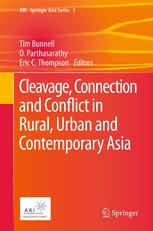

Most ebook files are in PDF format, so you can easily read them using various software such as Foxit Reader or directly on the Google Chrome browser.
Some ebook files are released by publishers in other formats such as .awz, .mobi, .epub, .fb2, etc. You may need to install specific software to read these formats on mobile/PC, such as Calibre.
Please read the tutorial at this link: https://ebookbell.com/faq
We offer FREE conversion to the popular formats you request; however, this may take some time. Therefore, right after payment, please email us, and we will try to provide the service as quickly as possible.
For some exceptional file formats or broken links (if any), please refrain from opening any disputes. Instead, email us first, and we will try to assist within a maximum of 6 hours.
EbookBell Team

4.3
28 reviewsAsia, the location of the world’s fastest-growing economies, is also home to some of the fastest rates of urbanization humanity has ever seen, a process whose speed renders long-term outcomes highly unpredictable. This volume contrasts with much published work on the rural/urban divide, which has tended to focus on single case studies. It provides empirical perspectives from four Asian countries: India, Indonesia, Malaysia, and Thailand, and includes a wealth of insights that both critique and expand popular notions of the rural-urban divide. The volume is relevant not just to Asian contexts but to social scientific research on population dynamics more generally.
Rather than deploying a single study to chart national trends, three chapters on each country make possible much more complex perspectives. As a result, this volume does more than extend our understanding of the interplay between cities and hinterlands within Asia. It enhances our notions of rural/urban cleavages, connections and conflicts more generally, with data and analysis ready for application to other contexts. Of interest to diverse scholars across the social sciences and Asian studies, this work includes accounts ranging from rural youth real estate entrepreneurs in Hyderabad, India, to social development in Aceh province in Indonesia, devastated by the 2004 tsunami, to the relationship between urban space and commonly held notions of the supernatural in Thailand’s northern city of Chiang Mai.